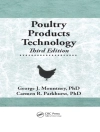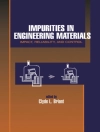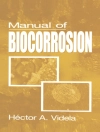Genetic Engineering: Principles and Methods presents state-of-the-art discussions in modern genetics and genetic engineering. Recent volumes have covered gene therapy research, genetic mapping, plant science and technology, transport protein biochemistry, and viral vectors in gene therapy, among many other topics.
Key features of Volume 27 include:
– Identification and Analysis of Micrornas
– Dormancy and the Cell Cycle
– Long distance peptide and metal transport in plants
– Signaling in plant response to temperature and water stresses
– Nutrient transport and metabolism in plants
– Salt Stress Signaling and Mechanisms of Plant Salt Tolerance
– Gene cloning and expression
– Assisted folding and assembly of proteins
表中的内容
Identification and Analysis of Micrornas.- Dormancy and the Cell Cycle.- The OPT Family Functions in Long-Distance Peptide and Metal Transport in Plants.- Phospholipid-Derived Signaling in Plant Response to Temperature and Water Stresses.- Anionic Nutrient Transport in Plants: The Molecular Basis of the Sulfate Transporter Gene Family.- Purification of Protein Complexes by Immunoaffinity Chromatography: Application to Transcription Machinery.- Biogenesis of Iron-Sulfur Cluster Proteins in Plastids.- Iron Transport and Metabolism in Plants.- Salt Stress Signaling and Mechanisms of Plant Salt Tolerance.- Strategies for High-Throughput Gene Cloning and Expression.- Molecular Roles of Chaperones in Assisted Folding and Assembly of Proteins.- Engineering Plants for Increased Nutrition and Antioxidant Content Through the Manipulation of the Vitamin E Pathway.
关于作者
Jane K. Setlow, Ph D. has championed the field of genetics for over 30 years, agreeing to edit Genetic Engineering: Principles & Methods since its inception in 1979. An internationally recognized scientist with numerous publications, Dr. Setlow is the former Chairperson of the NIH Recombinant DNA Molecule Advisory Committee (RAC).Her lab can found at Brookhaven National Laboratory, Upton, New York.












